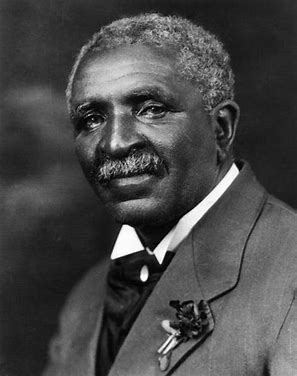“We ‘the people’ adopted a written Constitution precisely because it has a fixed meaning, a meaning that does not change. Otherwise we would have adopted the British approach of an unwritten, evolving constitution. Aside from amendment according to Article V, the Constitution’s meaning cannot be updated, or changed, or altered by the Supreme Court, the Congress, or the President. Of course, even when strictly interpreted as I believe it should be, the Constitution remains a modern, ‘breathing’ document as some like to call it, in the sense that the Court is constantly required to interpret how its provisions apply to the Constitutional questions of modern life. Nevertheless, strict interpretation must never surrender to the understandably attractive impulse towards creative but unwarranted alterations of first principles” — U.S. Supreme Court Justice Clarence Thomas, 2 February 2001.
Read MorePaul on Money in Politics
“Our federal government, which was intended to operate as a very limited constitutional republic, has instead become a virtually socialist leviathan that redistributes trillions of dollars. We can hardly be surprised when countless special interests fight for the money. The only true solution to the campaign money problem is a return to a proper constitutional government that does not control the economy. Big government and big campaign money go hand-in-hand” — former Texas congressman, presidential candidate Ron Paul.
Read MoreRand on Money
“When you have made evil the means of survival, do not expect men to remain good. Do not expect them to stay moral and lose their lives for the purpose of becoming the fodder of the immoral. Do not expect them to produce, when production is punished and looting rewarded. Do not ask, ‘Who is destroying the world? YOU are. You stand in the midst of the greatest achievements of the greatest productive civilization and you wonder why it’s crumbling around you, while you’re damning its life-blood–money. You look upon money as the savages did before you, and you wonder why the jungle is creeping back to the edge of your cities. Throughout men’s history, money was always seized by looters of one brand or another, whose names changed, but whose method remained the same: to seize wealth by force and to keep the producers bound, demeaned, defamed, deprived of honor” — from Francisco d’Anconia’s “Money Speech” in Atlas Shrugged by Ayn Rand.
Read MoreSowell on Health Care
“It is amazing that people who think we cannot afford to pay for doctors, hospitals, and medication somehow think that we can afford to pay for doctors, hospitals, medication and a government bureaucracy to administer universal health care" — economist Thomas Sowell, author of Basic Economics, Conflict of Visions, etc.
Read MoreThatcher on Society
“There is no such thing as society. There is living tapestry of men and women and people and the beauty of that tapestry and the quality of our lives will depend upon how much each of us is prepared to take responsibility for ourselves and each of us prepared to turn round and help by our own efforts those who are unfortunate. All too often the ills of this country are passed off as those of society. Similarly, when action is required, society is called upon to act. But society as such does not exist except as a concept. Society is made up of people. It is people who have duties and beliefs and resolve. It is people who get things done…To leave things to ‘society’ is to run away from the real decisions, practical responsibility and effective action” — Margaret Thatcher, 23 September 1987 interview.
Read MoreHamilton on Athens
“What the people wanted was a government which would provide a comfortable life for them, and with this as the foremost object ideas of freedom and self-reliance and service to the community were obscured to the point of disappearing. Athens was more and more looked on as a co-operative business, possessed of great wealth, in which all citizens had a right to share... Athens had reached the point of rejecting independence, and the freedom she now wanted was freedom from responsibility. There could be only one result... If men insisted on being free from the burden of a life that was self-dependent and also responsible for the common good, they would cease to be free at all. Responsibility was the price every man must pay for freedom. It was to be had on no other terms” — educator and classicist Edith Hamilton in Chapter 2 (“Athens’ Failure”) of The Echo of Greece (1957).
Read MoreJacobs on Vigilance
“I was brought up to believe that there is no virtue in conforming meekly to the dominant opinion of the moment. I was encouraged to believe that simple conformity results in stagnation for a society, and that American progress has been largely owing to the opportunity for experimentation, the leeway given initiative, and to a gusto and a freedom for chewing over odd ideas…I was taught that the American's right to be a free individual, not at the mercy of the state, was hard-won and that its price was eternal vigilance, that I too would have to be vigilant. I was made to feel that it would be a disgrace to me, as an individual, if I should not value or should give up rights that were dearly bought. I am grateful for that upbringing” — journalist, activist and critic of government “urban renewal” policies Jane Jacobs, author of The Death and Life of Great American Cities. These remarks are among her answers to a political questionnaire from the U.S. Department of State in 1952.
Read MoreBenson on Human Nature
“The Lord works from the inside out. The world works from the outside in. The world would take people out of the slums. Christ takes the slums out of people, and then they take themselves out of the slums. The world would mold men by changing their environment. Christ changes men, who then change their environment. The world would shape human behavior, but Christ can change human nature” — Ezra Taft Benson (1889-1994), Secretary of Agriculture for eight years under Dwight Eisenhower, 13th president of the Church of Jesus Christ of Latter-Day Saints, and member of the board of trustees of the Foundation for Economic Education (FEE).
Read MoreBonhoeffer on Silence
"Silence in the face of evil is itself evil: God will not hold us guiltless. Not to speak is to speak. Not to act is to act" -- theologian and dissident Dietrich Bonhoeffer, who was martyred by the Nazi regime because of his complicity in the 1944 plot to kill Hitler.
Read MoreCarver on Hate
“Fear of something is at the root of hate for others, and hate within will eventually destroy the hater. Keep your thoughts free from hate, and you need have no fear from those who hate you” — scientist George Washington Carver, as quoted in Linda O. McMurray’s George Washington Carver: Scientist and Symbol (Oxford University Press, 1982).
Read More
Washington on Character
“I learned the lesson that great men cultivate love, and that only little men cherish a spirit of hatred. I learned that assistance given to the weak makes the one who gives it strong; and that oppression of the unfortunate makes one weak…I would permit no man, no matter what his color might be, to narrow and degrade my soul by making me hate him…Few things can help an individual more than to place responsibility on him, and to let him know that you trust him” — Booker T. Washington in Chapter XI of Up From Slavery (1901).
Read MoreSutherland on Liberty
“Do the people of this land—in the providence of God, favored, as they sometimes boast, above all others in the plenitude of their liberties—desire to preserve those so carefully protected by the First Amendment: liberty of religious worship, freedom of speech and of the press, and the right as freemen peaceably to assemble and petition their government for a redress of grievances? If so, let them withstand all beginnings of encroachment. For the saddest epitaph which can be carved in memory of a vanished liberty is that it was lost because its possessors failed to stretch forth a saving hand while yet there was time” — former U.S. Supreme Court Justice George Sutherland of Utah, in his dissent in Associated Press v. National Labor Relations Board, 301 U.S. 103, 141 (1937).
Read MoreJohnson on Collectivism
“Men are excessively ruthless and cruel not as a rule out of malice but from outraged righteousness. How much more is this true of legally constituted states, invested with all this seeming moral authority of parliaments and congresses and courts of justice! The destructive capacity of an individual, however vicious, is small; of the state, however well-intentioned, almost limitless. Expand the state and the destructive capacity necessarily expands too. Collective righteousness is far more ungovernable than any individual pursuit of revenge. That was a point well understood by Woodrow Wilson, who warned: 'Once lead this people into war and they'll forget there ever was such a thing as tolerance” — British historian Paul Johnson in Modern Times (1983).
Read More
Thatcher on Capitalism
“You cannot build a great nation or brotherhood of man by spreading envy or hatred. It is not our policy to suppress success. Our policy is not built on envy or hatred, but on liberty for the individual man or woman. Communism was the regime for the privileged elite, capitalism the creed for the common man” — Margaret Thatcher in The Path to Power, 1995.
Read MoreSowell on Academia
“The most fundamental fact about the ideas of the political Left is that they do not work. Therefore we should not be surprised to find the Left concentrated in institutions where ideas do not have to work in order to survive" -- economist Thomas Sowell.
Read MoreSchumpeter on Production
“It is the cheap cloth, the cheap cotton and rayon fabric, boots, motorcars and so on that are the typical achievements of capitalist production, and not as a rule improvements that would mean much to the rich man. Queen Elisabeth owned silk stockings. The capitalist achievement does not typically consist in providing more silk stockings for queens but in bringing them within the reach of factory girls in return for steadily decreasing amounts of effort” — economist Joseph Schumpter in Capitalism, Socialism and Democracy.
Read MoreMises on Capitalism
“All people, however fanatical they may be in their zeal to disparage and to fight capitalism, implicitly pay homage to it by passionately clamoring for the products it turns out” — Austrian economist Ludwig von Mises in The Ultimate Foundation of Economic Science: An Essay on Method (1978).
Read MoreKing on Moral Values
“The great problem facing modern man is that, that the means by which we live have outdistanced the spiritual ends for which we live. So we find ourselves caught in a messed-up world. The problem is with man himself and man's soul. We haven't learned how to be just and honest and kind and true and loving. And that is the basis of our problem. The real problem is that through our scientific genius we've made of the world a neighborhood, but through our moral and spiritual genius we've failed to make of it a brotherhood” — Dr. Martin Luther King Jr. in Rediscovering Lost Values, a sermon delivered at Detroit's Second Baptist Church (28 February 1954),
Read MoreKasparov on Capitalism
“The failure of capitalism is still much better than the success of socialism — Russian chess grandmaster and champion Garry Kasparov in an April 2016 interview with Bill Kristol.
Read More
John Paul II on Truth
“Once the truth is denied to human beings, it is pure illusion to try to set them free. Truth and freedom either go together hand in hand or together they perish in misery” — Pope John Paul II in Encyclical Fides et Ratio, 14 September 1998.
Read More



















